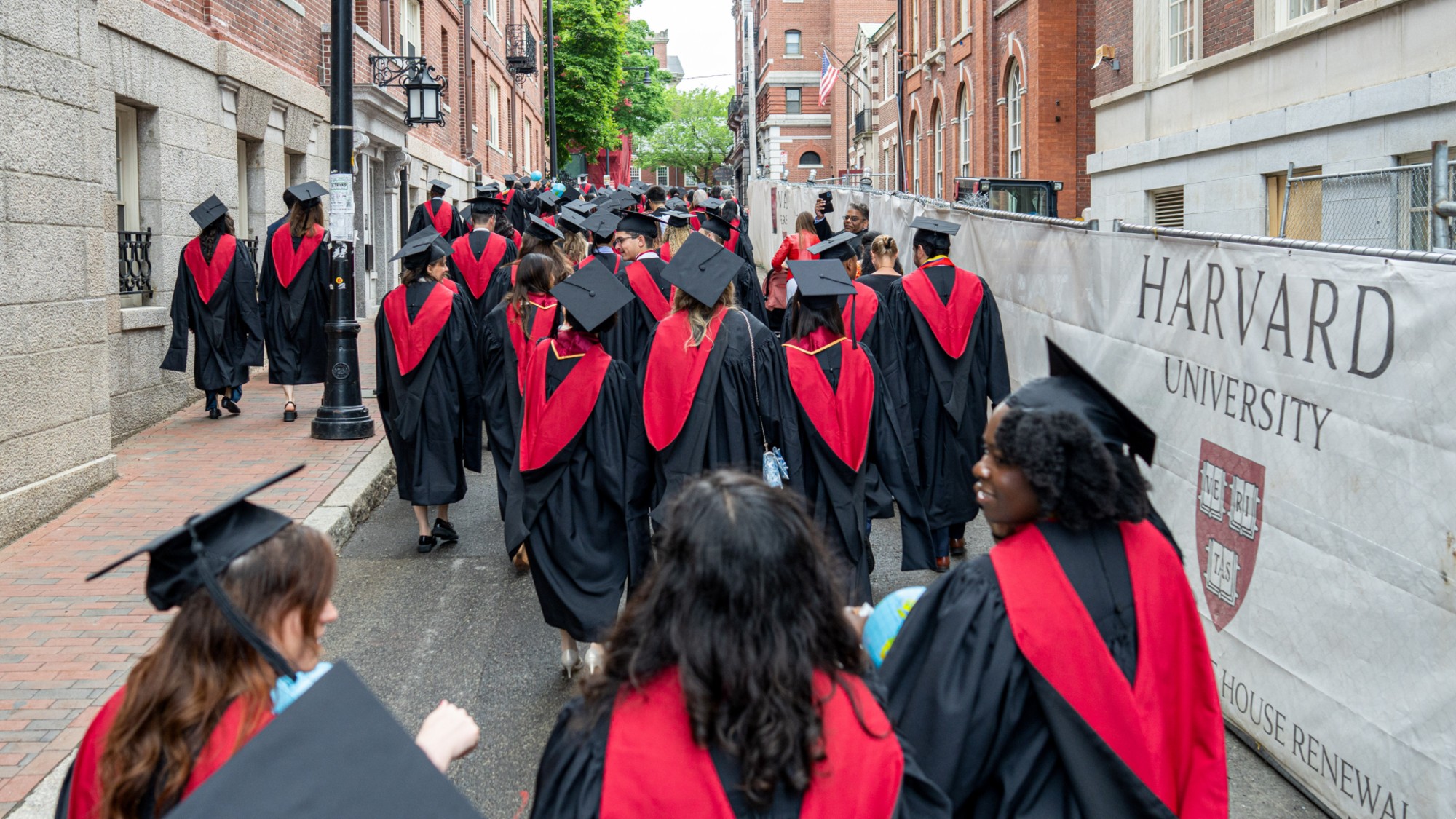Exam chaos: how universities will decide who gets a place
Institutions asked to hold places for A-level students appealing grades in England following results row in Scotland

A free daily email with the biggest news stories of the day – and the best features from TheWeek.com
You are now subscribed
Your newsletter sign-up was successful
The government is urging England’s universities to be “flexible” about admissions for students who appeal against their A-level grades after getting their results this week.
The request from the Department for Education comes amid warnings that thousands of pupils could miss out on university places as a result of “exam chaos”, reports Sky News. Exam boards are expected to be inundated with appeals following results day on Thursday, after end-of-year exams were cancelled owing to the coronavirus pandemic and replaced with a partly-automated predicted grade scheme.
The warnings follow an exams row in Scotland, where more than 120,000 grades pulled down by moderators are to be reinstated, after “days of protests by pupils, teachers and opposition parties”, says The Guardian.
The Week
Escape your echo chamber. Get the facts behind the news, plus analysis from multiple perspectives.

Sign up for The Week's Free Newsletters
From our morning news briefing to a weekly Good News Newsletter, get the best of The Week delivered directly to your inbox.
From our morning news briefing to a weekly Good News Newsletter, get the best of The Week delivered directly to your inbox.
In a letter to all vice-chancellors in England, Universities Minister Michelle Donelan is requesting that the institutions “hold places” while contested grades are reassessed.
What is happening on results day?
Students in England are to receive estimated results using a makeshift system of exam grading. Although final marks will be based on teachers’ predictions, “exam boards are expected to lower nearly 40% of grades using a computerised marking scheme to ensure results are not significantly higher than previous years”, says the Daily Mail.
According to the BBC, the “biggest factors determining the replacement exam grades” will be “how students are ranked in ability and the previous exam results of their school or college”.
A free daily email with the biggest news stories of the day – and the best features from TheWeek.com
What have universities been asked to do?
The request that universities hold places wherever possible for A-level students contesting grades until they get their final results is intended to ensure the applicants do not miss out on places at their first-choice institutions in the meantime.
As The Telegraph reports, “there are rising concerns that the English exam regulator’s statistical model – which, like the Scottish one, takes into account pupils’ past performance as well as their school’s historic grades – will punish children from poor communities”.
Appeals have to be submitted by schools and should have been reviewed by 7 September.
“Nobody should have to put their future on hold because of this virus,” Donelan wrote in her letter to university vice-chancellors. “That is why I am urging universities to be as flexible as possible in their admissions and to hold places for those whose grades are being appealed.”
Education Secretary Gavin Williamson added that he was “confident the system Ofqual has put in place is fundamentally a fair one”, but admitted that “without exams, even the best system is not perfect”.
Why has the government intervened?
The government has stepped in following widespread anger over the Scottish Highers exam results, which were released last week. Pass rates for pupils in the most deprived data zones were reduced by 15.2%, compared with 6.9% for pupils from the most affluent backgrounds.
After initially attempting to defend the system, Scottish Education Minister John Swinney announced on Tuesday that all the downgraded results would be withdrawn and replaced with teachers’ recommendations, telling the Scottish parliament: “We got this wrong.”
-
 How the FCC’s ‘equal time’ rule works
How the FCC’s ‘equal time’ rule worksIn the Spotlight The law is at the heart of the Colbert-CBS conflict
-
 What is the endgame in the DHS shutdown?
What is the endgame in the DHS shutdown?Today’s Big Question Democrats want to rein in ICE’s immigration crackdown
-
 ‘Poor time management isn’t just an inconvenience’
‘Poor time management isn’t just an inconvenience’Instant Opinion Opinion, comment and editorials of the day
-
 American universities are losing ground to their foreign counterparts
American universities are losing ground to their foreign counterpartsThe Explainer While Harvard is still near the top, other colleges have slipped
-
 How will new V level qualifications work?
How will new V level qualifications work?The Explainer Government proposals aim to ‘streamline’ post-GCSE education options
-
 The pros and cons of banning cellphones in classrooms
The pros and cons of banning cellphones in classroomsPros and cons The devices could be major distractions
-
 School phone bans: Why they're spreading
School phone bans: Why they're spreadingFeature 17 states are imposing all-day phone bans in schools
-
 Schools: The return of a dreaded fitness test
Schools: The return of a dreaded fitness testFeature Donald Trump is bringing the Presidential Fitness Test back to classrooms nationwide
-
 Send reforms: government's battle over special educational needs
Send reforms: government's battle over special educational needsThe Explainer Current system in 'crisis' but parents fear overhaul will leave many young people behind
-
 Where will international students go if not the US?
Where will international students go if not the US?Talking Points China, Canada and the UK are ready to educate the world
-
 Colleges are canceling affinity graduations amid DEI attacks but students are pressing on
Colleges are canceling affinity graduations amid DEI attacks but students are pressing onIn the Spotlight The commencement at Harvard University was in the news, but other colleges are also taking action